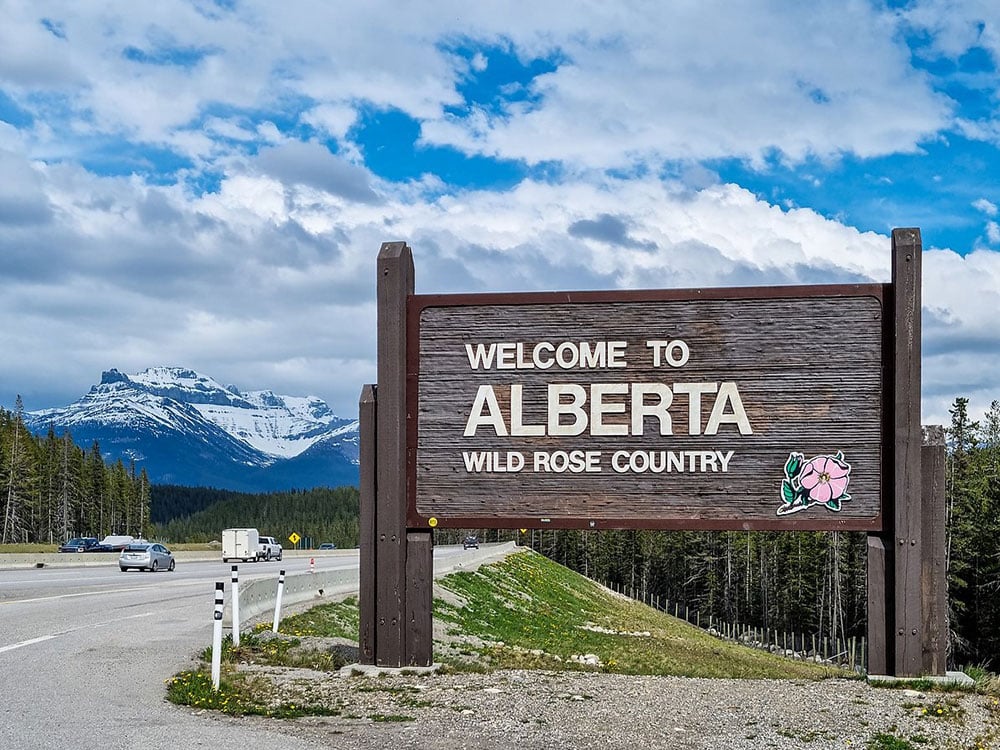Dear Canada,
I am reaching out to you on my behalf and on behalf of all those Albertans who are concerned with misconceptions about our province. Not all Albertans are interested in separating from Canada, we don’t regard the Constitution as a buffet, nor are we climate-change deniers.
However, Albertans do have targets on their backs which label them as climate villains. We are the biggest producer of fossil fuels in Canada, a major beef producer and a big user of fertilizer — all practices tied to rising emissions. Blanket condemnations of these three pillars of the province’s economy trigger defensiveness among many Albertans, and stir age-old grievances.
Result: There is plenty of angst to harvest. Danielle Smith exploited those feelings in her leadership campaign and continues to do so as premier. She is banking on alienated Albertans to elect her next May, so prepare for a lot of wild rhetoric leading up to the big vote.
It is important for Canadians to understand the backstory before judging us too harshly.
A brief history of Prairie resentments
There is no question that residents of the Canadian Prairies were treated like second-class citizens when they achieved provincehood. This was mainly because of their origins. While the other provinces were British colonies, the Prairies were part of Rupert’s Land, owned by the Hudson’s Bay Company.
The land was purchased by Canada for £300,000 ($1.5 million) in 1870, making the Prairie provinces children of Confederation. (Arguably, Alberta has yet to recover from that!) A small slice of what is today Manitoba, was elevated to provincial status in 1870, accelerated by the Red River Rebellion led by Louis Riel.
It took until 1905 for Alberta and Saskatchewan to become provinces, and soon after, dissatisfaction began to grow. Grievances ranged from freight rates (which residents had to pay on incoming goods as well as outgoing products), tariffs and transportation policies. The Prairies were not granted ownership of the land and natural resources immediately, because the region was a sparsely populated frontier and Ottawa was anxious to settle it quickly and uniformly.
The age of “free land” in the U.S. was over and there was fear that Americans would sweep in and occupy the Prairies. Ottawa also had to set aside land across the region for the railroad. The federal government had no interest in the natural resources, but the relevant constitutional section referred jointly to public lands, minerals and royalties.
Prairie farmers were forced to buy from a protected central Canadian market and sell their grain on the unprotected international market. Although these grievances were real and produced what is known as “western alienation,” they have since been addressed. When Danielle Smith vows to protect Albertans from “a lawless Ottawa” she is employing a familiar strategy. Reviving memories of historic wrongs has been the default position of several provincial leaders who evoked alienation at every real or perceived assault on the province’s interests.
Discussion of who should control and benefit from natural resources evokes a passionate response among Albertans because, as mentioned above, the Prairies were denied ownership until 1930. Negotiations dragged on for decades because the First World War intervened. Thereafter, the sticking point was whether they should continue to receive the subsidy that compensated them for alienation of their natural resources.
Why talking transition resonates
What people in the rest of the country need to understand is that although thousands of Albertans depend on fossil fuels for their livelihoods, most do not oppose climate mitigation measures altogether. They understand the existential threat to the planet posed by fossil fuels. But what they need is an understanding of their plight and tangible efforts to help them transition to a sustainable economy.
It matters little to unemployed workers that Ottawa bought the Trans Mountain pipeline for $4.5 billion and is pouring $2.6 billion into carbon capture and storage.
Albertans are aware of the help extended to the auto industry in Ontario, Canada’s most populous and powerful province. Ottawa (and the provincial government) stepped in immediately to save the jobs of thousands of autoworkers when car makers could not meet payroll in 2008. The historic rescue package of over $13 billion was a loan and most of it was repaid. The oil and gas industry certainly doesn’t need a bailout. However, employment in the sector is down 25 per cent and the long-term future is bleak.
Pouring more public money into megaprojects is futile. What is urgently required is an aggressive federal campaign to retrain Albertans, especially those with transferable technical skills.
Canadians have become accustomed to political posturing as premiers defend their territory, cementing the reputations of their population in the process.
Sadly, there is no mechanism for citizens to break out of their provincial silos and communicate directly with each other. If that were possible, misconceptions about this province could be laid to rest. Perhaps as we enter a new year together, Canadians might reach out to Albertans and remind them that we are all part of the same family. ![]()

















Tyee Commenting Guidelines
Comments that violate guidelines risk being deleted, and violations may result in a temporary or permanent user ban. Maintain the spirit of good conversation to stay in the discussion.
*Please note The Tyee is not a forum for spreading misinformation about COVID-19, denying its existence or minimizing its risk to public health.
Do:
Do not: